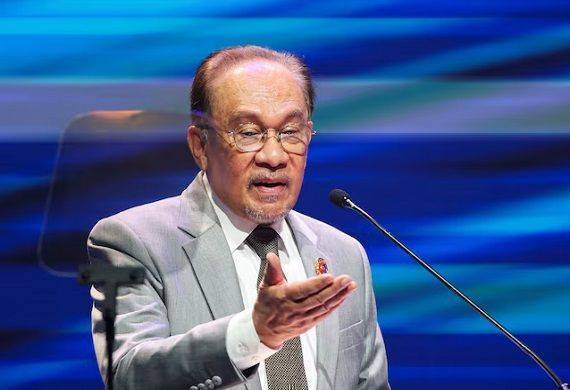Malaysia PM Unveils Measures to Ease Rising Living Costs
By Global Leaders Insights Team | Jul 23, 2025

Malaysian Prime Minister Anwar Ibrahim announced a series of measures on Wednesday to address public concerns over escalating living costs, including a cash handout for all adult citizens and a pledge to reduce fuel prices.
Speaking to parliament, he shared that every Malaysian adult over 18 will get a one-time cash payment of 100 ringgit ($23.67) starting August 31.
This move, aimed at supporting 22 million people, will cost the government 2 billion ringgit and is part of a larger 15 billion ringgit ($3.55 billion) aid package for 2025—up from the 13 billion ringgit originally planned.
- Malaysia PM Anwar Announces RM100 Cash Aid and Fuel Subsidy Reform to Tackle Living Costs
- Anwar Ibrahim Unveils RM15 Billion Relief Package Amid Rising Cost of Living in Malaysia
- Malaysia to Roll Out Fuel Subsidy Reforms, Cash Payments for 22 Million Adults Starting August 31
Anwar also promised to tackle fuel prices, saying he’ll roll out a plan by the end of September to rework RON95 fuel subsidies. The goal is to lower pump prices while making sure help goes to those who need it most. “I hear how tough things are,” Anwar said, acknowledging the public’s frustrations. “We’re working hard to support everyone.” He hinted at more help for those in poverty, with details coming on Thursday.
This comes as Malaysia faces economic headwinds, including a 25% U.S. tariff on exports starting August 1, which has sparked urgent trade talks. The central bank recently cut interest rates to 2.75%, pointing to global trade worries. Meanwhile, a big protest is brewing in Kuala Lumpur this Saturday, with police expecting 10,000 to 15,000 people to show up, demanding action on rising costs and unfulfilled promises.
Also Read: Japanese Prime Minister Ishiba to Resign After Election Defeat
Anwar’s team is trying to balance relief for everyday Malaysians with broader economic fixes, like raising the minimum wage earlier this year, hiking electricity rates for big users, and taxing luxury imports to bring in more revenue. They’re also aiming to shrink the fiscal deficit to 3.8% of GDP in 2025. While these steps show the government’s effort to lighten the load, many are waiting to see if they’ll make a real difference in calming public frustration.
.jpg)



